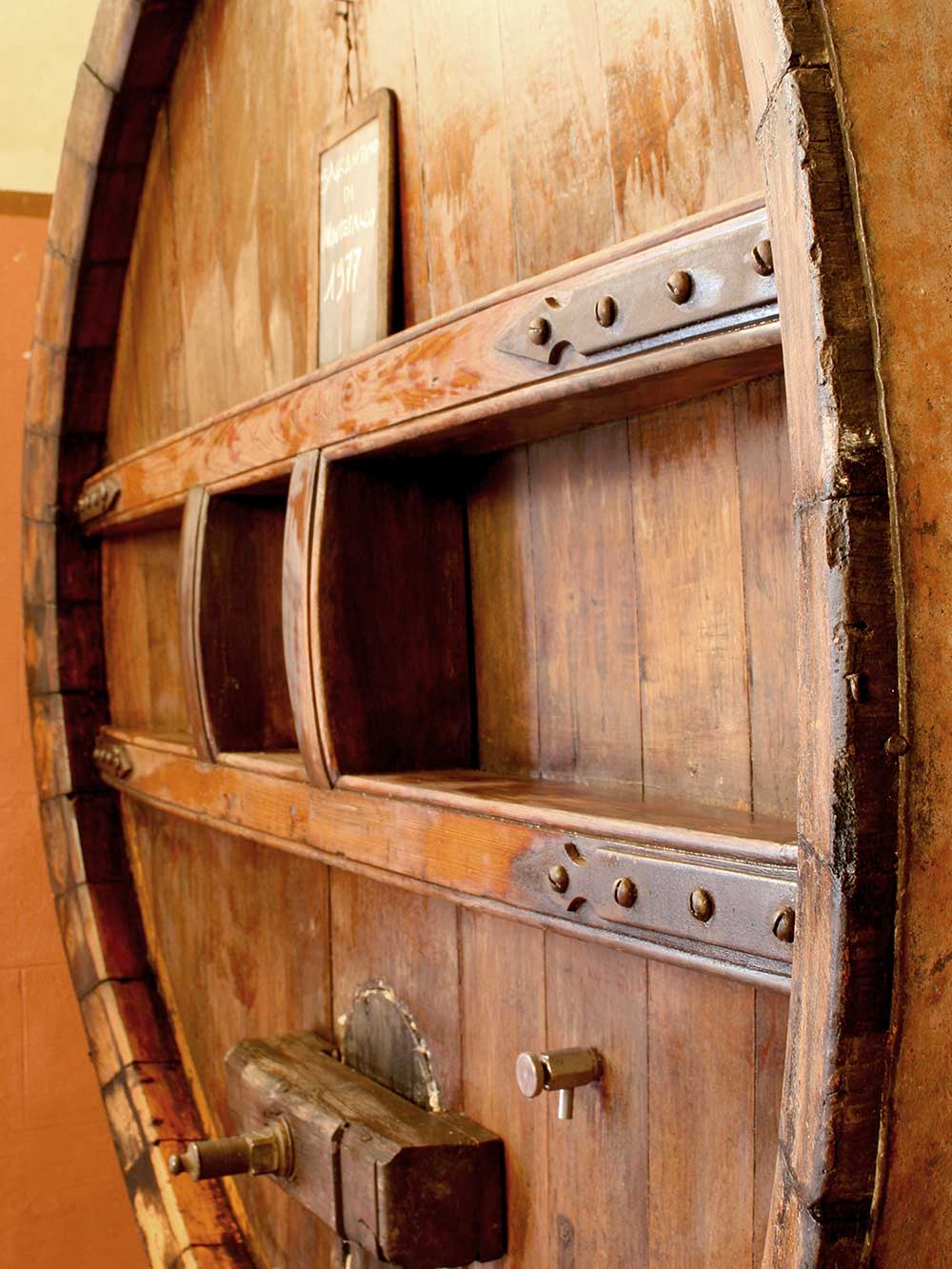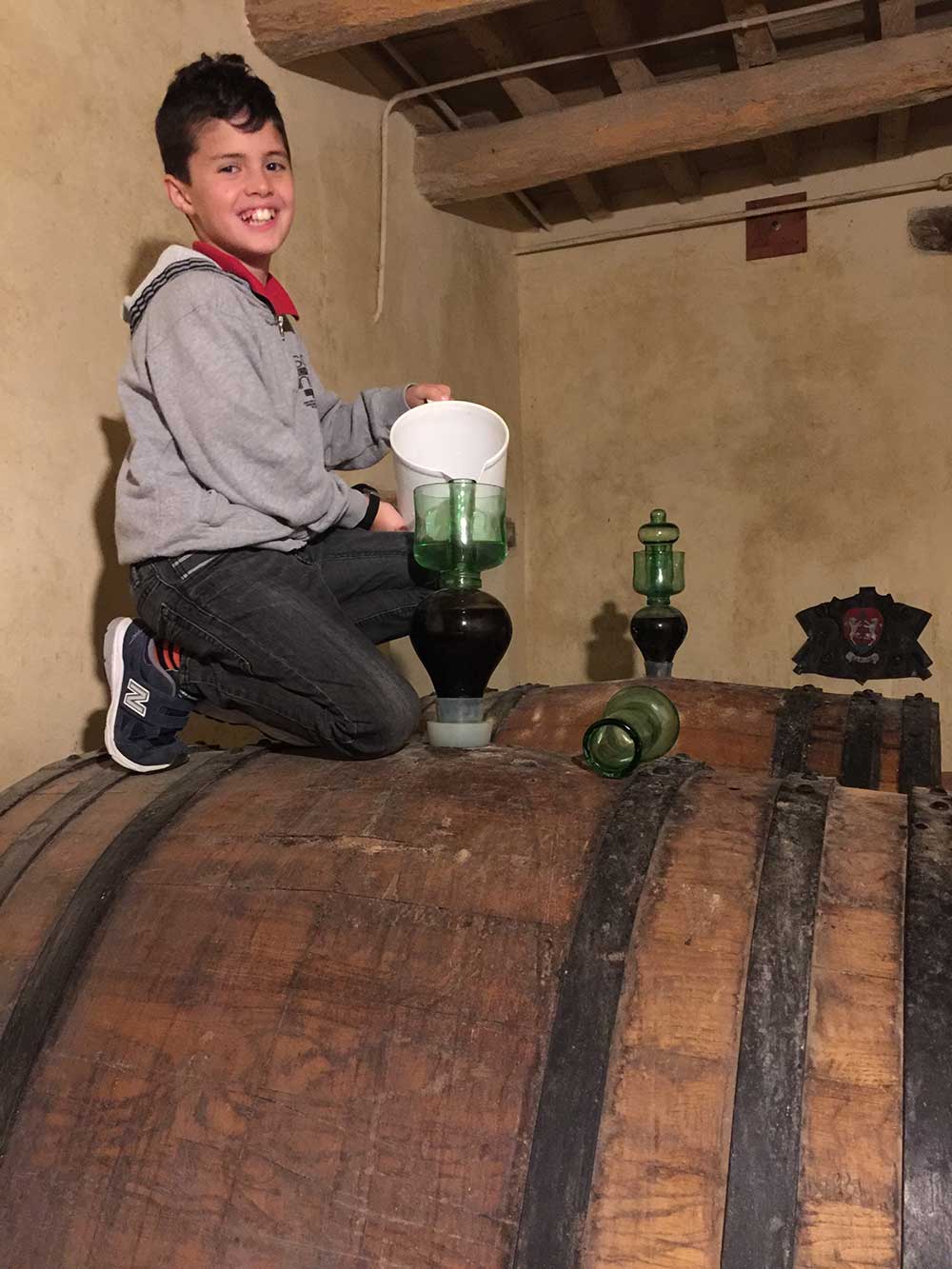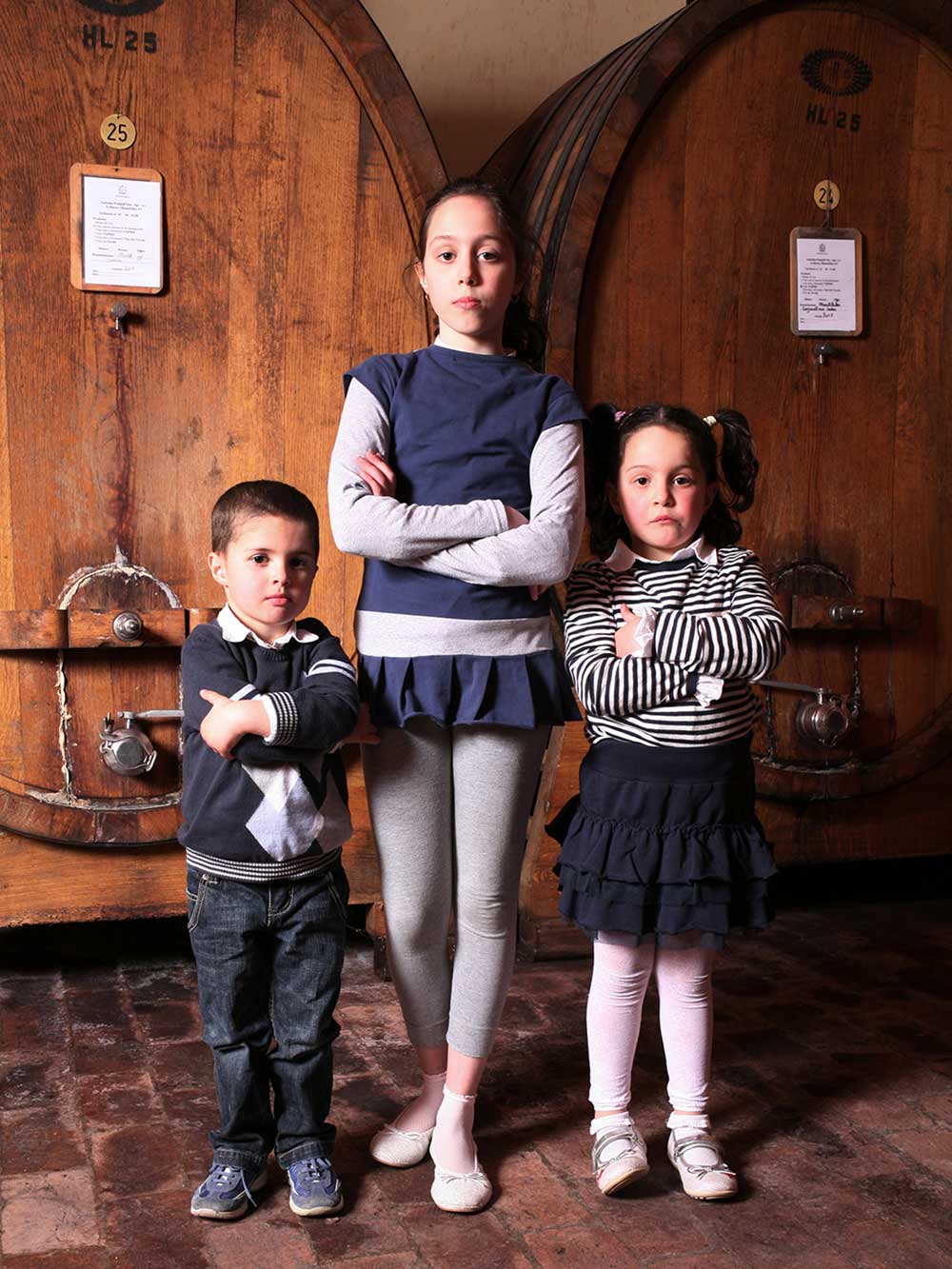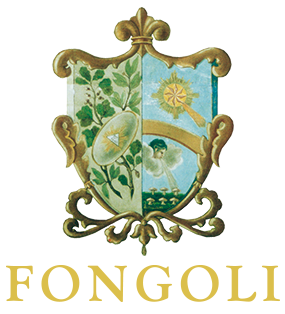Philosophy
Our farm consists of one contiguous piece of land of 35 hectares, containing vineyards, woods, arable farmland, olive groves, and an oak stand where truffles grow naturally. Everything is farmed according to biodynamic methods.
Our family has always farmed this land with great regard for the environment, but from the end of the last century we have followed a radical, persistent trend towards a complete return to natural methodology. With extremely deep ploughing in the autumn promoting oxygenation and permeability of the soil, and the springtime turning over of the soil and/or ploughing-in of green compost (in the form of wild and cultivated grasses and crops), we cultivate between every other row of vines. We don’t use any fertiliser or manure. We spray horn manure twice a year and distribute prevalently vegetable matter, all natural produce of our farm. We have abandoned all rotary equipment for working our soil, returning to using traditional trawling tools that do not alter the stratification of the soil or its microbial life. Mechanical weeding of the entire row changed from a milling disc to a disc working on the sub row only, letting wild grasses grow spontaneously. This growth is managed, favouring native varieties by way of the frequency and height of mowing. The tractor is used as little as possible to reduce soil compaction.
Biodiversity has also increased because of the presence, in the vineyards, of spontaneous tall trees, shrubs and grasses which alternate with and surround the cultivated areas. Periodic monitoring of the number and type of grasses and insects present in the vineyards is carried out in order to assess actual progress and validity of the choices we’ve made. The vines are protected with copper sulphate and lime in micro-dosages and sulphur in powdered or wettable form, used in accordance with the VinNatur production specifications, which sees a very limited use of both sulphur and copper.
Our family has always farmed this land with great regard for the environment, but from the end of the last century we have followed a radical, persistent trend towards a complete return to natural methodology. With extremely deep ploughing in the autumn promoting oxygenation and permeability of the soil, and the springtime turning over of the soil and/or ploughing-in of green compost (in the form of wild and cultivated grasses and crops), we cultivate between every other row of vines. We don’t use any fertiliser or manure. We spray horn manure twice a year and distribute prevalently vegetable matter, all natural produce of our farm. We have abandoned all rotary equipment for working our soil, returning to using traditional trawling tools that do not alter the stratification of the soil or its microbial life. Mechanical weeding of the entire row changed from a milling disc to a disc working on the sub row only, letting wild grasses grow spontaneously. This growth is managed, favouring native varieties by way of the frequency and height of mowing. The tractor is used as little as possible to reduce soil compaction.
Biodiversity has also increased because of the presence, in the vineyards, of spontaneous tall trees, shrubs and grasses which alternate with and surround the cultivated areas. Periodic monitoring of the number and type of grasses and insects present in the vineyards is carried out in order to assess actual progress and validity of the choices we’ve made. The vines are protected with copper sulphate and lime in micro-dosages and sulphur in powdered or wettable form, used in accordance with the VinNatur production specifications, which sees a very limited use of both sulphur and copper.
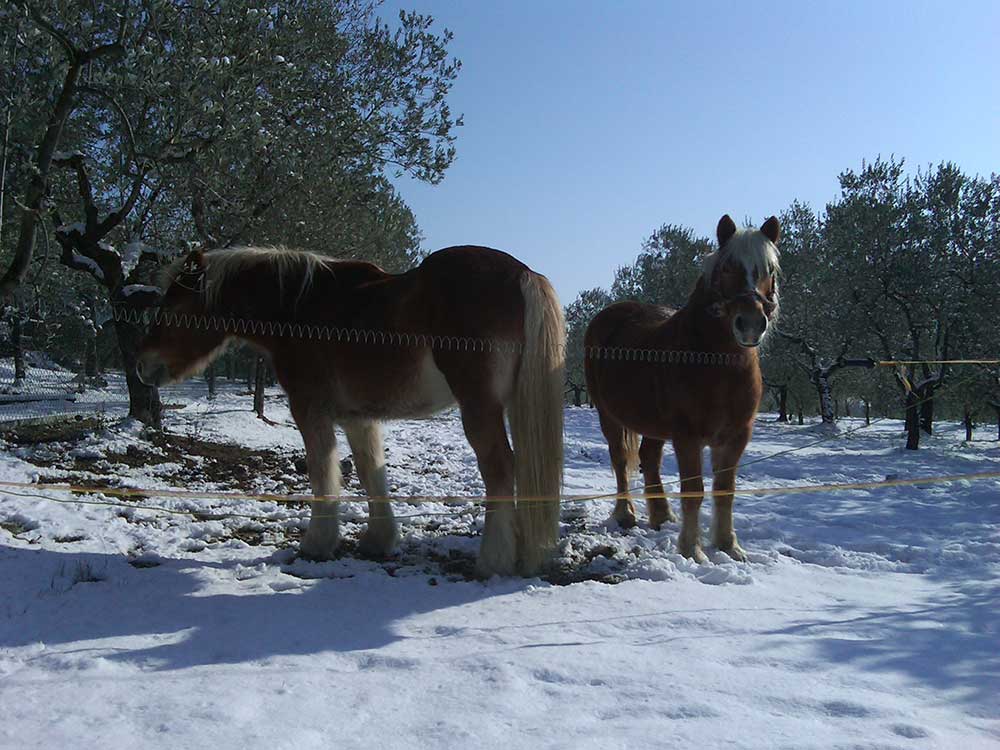
The olive grove is an experiment in self-regulation where freely grazing horses manage the grass, ensuring an increase in biodiversity and self-fertilisation.
We don’t fertilise the soil except with green manure.
Our wines are produced exclusively from our own grapes. The central position of the winery in relation to the vineyards, which form a single body of 23 hectares, is one of the main advantages of our winemaking technique. The short harvesting times and the possibility of managing the harvest according to the ripeness of the individual vineyards and the needs of the cellar guarantee the possibility of processing most of the grapes without adding sulphur.
We do not have standard winemaking protocols, as we vary the processes according to the colours, aromas and flavours of the must that arrives at the winery as well as the course of the individual seasons, implementing new experiments and ideas that stimulate the work of the winemaker. The winemaking process is based on oenological techniques and knowledge related solely to our own vineyards and grapes, supplemented by artisan intuition. Our production is based on the history of our company and the territory it represents, standing firm by a winemaking tradition that is almost a hundred years old, but also taking advantage of modern techniques and winemaking styles. We never vinify in reduction, because a conscious vinification does not fear oxygen, but uses it carefully, according to the needs of the individual wines and vintages.
All fermentations take place spontaneously without a fermentation foot but through oxygenation of the must to encourage a good start for the yeast. All our white and red wines are fermented in steel tanks, open vats or terracotta amphorae. We carry out micro-fermentations, that can then be blended once fermentation is complete. The red wines we age are matured in large Slavonian oak casks for two years (for Montefalco Rosso) and up to five years for Sagrantino. No filtration or clarification is carried out, the wines are clarified naturally with racking and oxygenation following the phases of the moon.
We do not have standard winemaking protocols, as we vary the processes according to the colours, aromas and flavours of the must that arrives at the winery as well as the course of the individual seasons, implementing new experiments and ideas that stimulate the work of the winemaker. The winemaking process is based on oenological techniques and knowledge related solely to our own vineyards and grapes, supplemented by artisan intuition. Our production is based on the history of our company and the territory it represents, standing firm by a winemaking tradition that is almost a hundred years old, but also taking advantage of modern techniques and winemaking styles. We never vinify in reduction, because a conscious vinification does not fear oxygen, but uses it carefully, according to the needs of the individual wines and vintages.
All fermentations take place spontaneously without a fermentation foot but through oxygenation of the must to encourage a good start for the yeast. All our white and red wines are fermented in steel tanks, open vats or terracotta amphorae. We carry out micro-fermentations, that can then be blended once fermentation is complete. The red wines we age are matured in large Slavonian oak casks for two years (for Montefalco Rosso) and up to five years for Sagrantino. No filtration or clarification is carried out, the wines are clarified naturally with racking and oxygenation following the phases of the moon.
